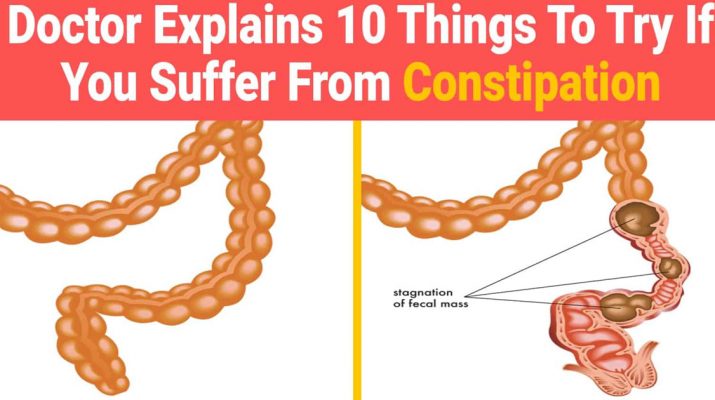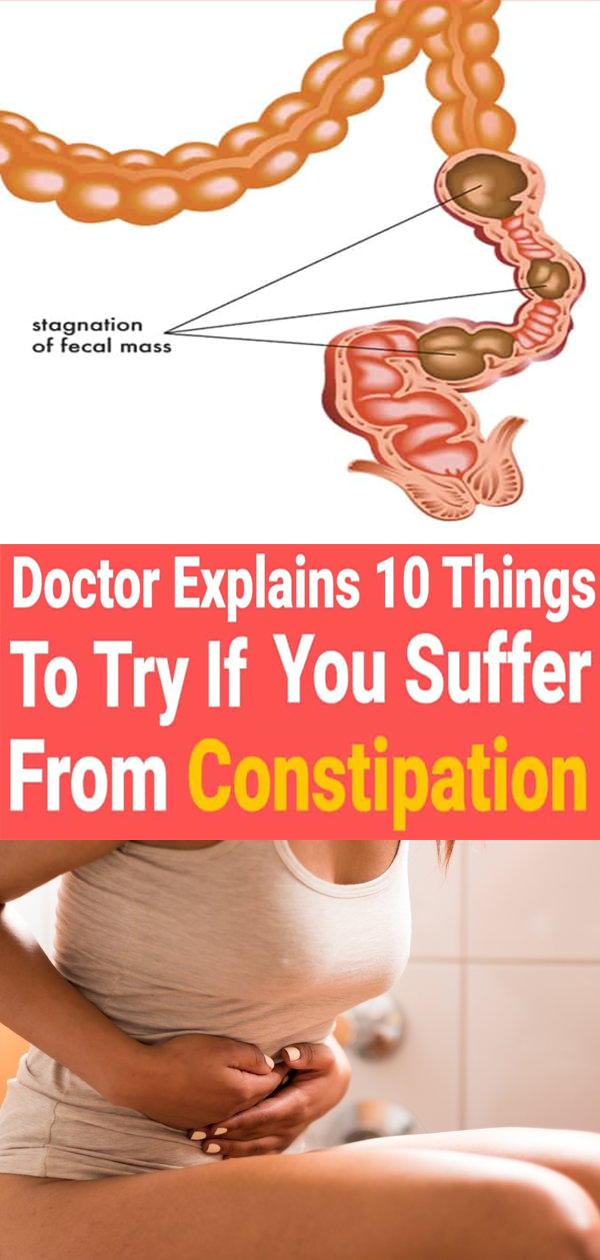Most of us take our regularity in the bathroom for granted. Many people never consider their bowel movements until something goes wrong.
Understanding and Treating Constipation Causes
Depending on your diet, you may find that you never have any issues with your digestive system. However, constipation can happen to anyone.
If you ever find yourself struggling to go when you need to, the following 10 suggestions will help you beat these symptoms.
1. Treat Ibs Sensitivities
IBS or irritable bowel syndrome affects around 11% of people worldwide. Consequently, IBS causes chronic diarrhea, constipation, and alternating symptoms.
Currently, there isn’t a cure for IBS, but there are certain changes one can make to their diet to help reduce these symptoms.
Similarly, a low-FODMAP diet is often used to help prevent constipation. These FODMAPs are carbohydrates found in grains, sweeteners, legumes, vegetables, and fruits. As they aren’t digested well by the small intestine, they can ferment as they reach the bowels. This fermentation leads to these symptoms and similar digestive issues.
To ease these symptoms, individuals can eliminate high FODMAP foods in their diet. To boost their tolerance of these foods, individuals can systematically reintroduce these foods back into their diets.
While these diets are temporary, they are helpful for identifying any food sensitivities that trigger IBS. Once you are aware of these triggers, you’ll be better able to shape your new diet to minimize your symptoms.
2. Adjust Your Intake Of Fiber
Fibers are a certain type of carbohydrate found in plants. There are two different types of fiber: insoluble and soluble.
Insoluble fiber can be found in vegetable and fruit skins, and in grains as well. Soluble fiber is the fiber found in oats, fruits, nuts, and legumes.
When determining what fiber is helpful for reducing these symptoms, it depends on which type of fiber you are consuming.
Soluble fiber will help to bulk up and soften your stool. This type of fiber has been proven to reduce these symptoms better than insoluble fiber.
Moreover, insoluble fiber may even worsen the symptoms in IBS patients. If you are frequently constipated, it is better for you to intake lower amounts of insoluble fiber. Similarly, adding more soluble fiber may be beneficial in the event that you are sensitive to FODMAPs.
If you find it hard to add the recommended amount of fiber to your diet, consider using fiber supplements. Be sure to consult with a dietician to better determine how to add more fiber to your diet.
3. Consume An Adequate Amount Of Fluids
Dry stools are often symptomatic of a lack of fluids. Increasing your intake of fluids is helpful for preventing this issue, but doesn’t quite work to treat constipation as effectively as one might imagine.
In addition to staying as hydrated as possible, it is important to remember that some of the moisture your body absorbs comes from food as wells as drinks. Consuming moist foods like fruits and soups are a good way to ensure that you are working to stay hydrated.
One study showed that stool weight and stool frequency were lower in individuals with an intake of fluids less than 500 ml a day. These studies show that while you shouldn’t over-hydrate, you should quench your thirst and maintain optimal hydration levels.
4. Consume More Probiotics
Probiotics are often associated with gut health but have many benefits when it comes to improving regularity. These probiotics are essentially live microorganisms that individuals consume to treat symptoms of IBS.
While there isn’t a direct link between these symptoms and probiotics, their connection to gut health shows how probiotics can improve symptoms of IBS and any issues related to constipation causes.
One particular study showed that patients given more probiotics were able to improve the gut transit in their bodies. Additionally, these probiotics also improved stool consistency, frequency, and flatulence.
Most probiotics can be taken as supplements or found in foods like yogurt and are safe for most adults.
5. Use Mindfulness Meditation To Lower Stress
Ever experience that sickening feeling in the pit of your stomach when something goes wrong? While this feeling usually passes for most people, others often experience the other side effects of diarrhea or constipation.
This stress and gut connection have become known to researchers as the “gut-brain axis”.
This connection explains the digestive symptoms that can be caused by psychological stress and anxiety. This is why stress can have such a powerful effect on the gut. Chronic stress can modify the microbiota in an individual’s gut, which then goes on to alter nerve actions inside the intestines.
In order to manage these digestive issues, you should work on using mindful meditation to lower your anxiety. To target IBS symptoms through meditation, work on learning coping mechanisms to help you better handle unnerving situations. The better you are able to remain calm in these situations, the better you will avoid these IBS symptoms.
6. Start Moving Your Body
Even though you may not feel like moving if you are feeling constipated, physical activity has been shown to be a solution for relieving these issues.
Moving your body can shorten the intestinal transit time which may help relieve your regularity issues.
One study, in particular, linked lower levels of physical activity to this issue. This study also analyzed other factors, like the variety of one’s diet to influence bowel symptoms. While it’s difficult to determine what degree of physical inactivity can be attributed to causing constipation, it is clear that maintaining a proper level of physical activity will improve one’s health.
Other studies have pinpointed a link between relief from this issue and exercise in the sense that exercise relieves stress. As stress can trigger IBS and bowel symptoms, using exercise to remain calm will more or less improve your bowel functions.
7. Try An Abdominal Massage
Massages are a great way to relieve any tension you are experiencing in your body—even ones related to IBS.
There are, in fact, specific massage therapy techniques that can help target your stool movement through your intestines. These massages help to increase the muscle contractions of your bowels.
These massages are performed around the abdomen and are used to relieve symptoms of constipated individuals that have been diagnosed with other medical conditions like Parkinson’s and other individuals with certain physical disabilities.
Additionally, massage has been proven as an effective method for improving the quality of life in constipated individuals. This technique is seen as a safe way to treat these individuals and can be learned easily through video tutorials and online lectures.
8. Go When You Need To And Keep Your Feet Propped
Another way to encourage regularity in constipated patients is to not resist the urge when one has to go.
While many people involuntarily withhold their bowel movements until they make time to go to the bathroom, this habit can lead to issues later on. Instead of resisting this urge, go when it’s time to go.
Instead of withholding your stool, make it a point to find a bathroom as soon as possible. This will ensure the stool doesn’t dry out, as it is easiest to pass when it is as moist as possible. Moreover, chronic stool withholding may eventually damage your nerves and lead to the stretching of your bowel walls.
Still struggling to push it out? Try to elevate your feet. If you get into a semi-squatting position, you’d better be able to release the stool. This squatting will widen your stance and lengthen your pelvic floor muscles, ultimately allowing for easier passage of your stool.
9. Use Over-The-Counter Treatments
Still looking for a way to treat your constipation causes? Head to your local pharmacy and try some over-the-counter solutions.
In most cases, these laxatives will help you release your bowel movements. As you shop for the right medicine, you’ll choose from four of the main type of laxatives:
- bulk-forming laxatives: these increase the size of the stool
- surfactant laxatives: these soften the stool
- osmotic laxatives: these help your bowel hold more water
- stimulating laxatives: these help trigger your nerves to increase contractions
Before taking treatments, it’s important to speak with your doctor as there can be serious side effects. If you do take these OTC medications, keep in mind that you should drink as many fluids as possible.
10. Certain Supplements Will Help
In addition to over-the-counter medications and changing your diet, consider certain supplements. Supplements like fig paste, aloe, and mineral oil have been proven to be helpful for constipated individuals.
Fig paste can reduce abdominal discomfort, the whole aloe can be used as a strong laxative. Mineral oil can ease your symptoms as it will help to lubricate the stool.
Final Thoughts On Constipation Causes
Constipation is one of the most frustrating things to experience. Make sure you stay regular by eating the right foods and staying hydrated.
Keep your constipation woes away by applying these 10 suggestions to your life. While you can’t control everything in life, you can work to make sure you stay on top of what’s coming and going in your life.


